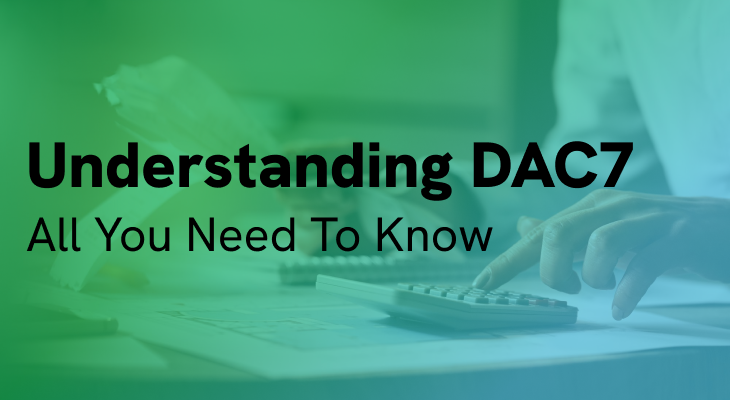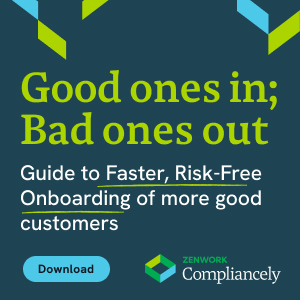
Understanding DAC7-All You Need To Know
Back in March 2021, as more people shifted their activities online, the European Commission introduced a plan to make sure taxes in the EU were fair and easy to understand. This plan, called the Administrative Cooperation in Taxation, aimed to simplify how taxes work within the European Union. However, it was the DAC7 rule, kicking in on January 1st, 2023, that changed how businesses had to follow tax rules in the region.
DAC7 is a set of guidelines specifically made to deal with taxes in the digital world. DAC7 is all about making tax processes clear and fair, especially for businesses working online.
Today, let’s dig into DAC7: what it means, why it matters, and what businesses need to do to follow its rules.
What Is DAC7?
DAC7 is a rule in the EU about taxes. It makes digital platform operators in the EU share info about the people and businesses using their platforms with tax authorities. These platforms are apps or websites that link sellers and buyers, like online marketplaces, ride-hailing apps, or food delivery services.
In technical terms, DAC7 (7th Directive of Administrative Cooperation) is an EU directive encompassing the 7th iteration of Administrative Cooperation in Taxation. It mandates digital platform operators within the EU to facilitate the exchange of user information with relevant tax authorities.
The goal of DAC7 is to make sure that everyone making money through these platforms pays the right amount of tax. DAC7 helps tax authorities keep track of income made on these digital platforms, making tax reporting fairer and more transparent. It’s an update to an existing tax rule, aiming to bring clarity and control to taxes in the digital world.
Why DAC7?
DAC7 is vital for ensuring fairness in taxes within the digital economy. Before DAC7, tax authorities in EU countries didn’t have enough details to accurately track and manage the money earned from business activities on digital platforms within their borders. This became a bigger issue when money earned through these platforms flowed through digital platforms in other countries, exposing economies to the risks of Money Laundering.
So, DAC7 steps in to solve this problem. Its main goal is to enhance tax compliance, concerning activities carried out on or via digital platforms. By doing this, it aims to bridge the ‘tax gap’—the difference between the taxes owed and those paid—especially for VAT (Value Added Tax) and corporate tax. DAC7 essentially helps tax authorities get a better grip on taxes related to digital platforms, making sure that taxes are paid properly on income generated through these platforms. This brings greater fairness and accuracy to tax reporting and collection in the digital sphere.
Who Needs to Comply with DAC7?
DAC7 applies to various digital platforms involved in specific activities. Entities engaging in certain types of business via digital platforms within the EU need to comply with its reporting obligations. Here are the main categories of platforms covered by DAC7:
- Rental of Immovable Property: Platforms facilitating the renting of both residential and commercial properties fall under DAC7. This includes services like Airbnb and Peerspace.
- Rental of Transport Modes: Platforms enabling the rental of any mode of transport, such as cars, boats, or bikes, come under DAC7. Examples include Getaround and Outdoorsy.
- Personal Services: Platforms offering time or task-based personal services at the user’s request need to comply. This includes services like Uber, Bolt, Wolt, Upwork, and Fiverr.
- Sale of Goods: E-commerce platforms facilitating the sale of goods also fall under DAC7. Examples are Etsy, eBay, and Amazon.
It’s important to note that even non-EU companies must comply if they operate within EU member states or if their sellers are active in the EU.
Who is exempt from DAC7 obligations?
Under DAC7, certain platforms and sellers are exempt from the reporting obligations. These exclusions help delineate the entities that don’t fall under DAC7 requirements:
Exempt Platforms:
- Payment Processing Platforms: Services solely involved in payment processing (e.g., Stripe, Wise, PayPal, Adyen) are exempt from DAC7 obligations. However, they might be subject to other EU reporting obligations scheduled to be enforced this year.
- Listing Platforms Not Involved in Transactions: Platforms merely listing items or services for sale or rent but not actively participating in facilitating transactions or being unaware of transaction values are exempt. Examples include Facebook Marketplace or Craigslist.
- Advertisement and Redirecting Activities: Platforms engaging in advertisement or redirecting activities without directly facilitating transactions are exempt from DAC7 obligations.
Exempt Sellers:
- Government and State Bodies: Entities classified as government or state bodies are exempt from DAC7 reporting obligations.
- Publicly Traded Entities: Companies regularly traded on established securities markets fall under the exemption.
- High-Volume Real Estate or Low-Value Sales: Sellers dealing with over 2,000 immovable property rentals per year or engaging in the sale of goods with fewer than 30 sales and less than EUR 2,000 per year are exempt from DAC7 obligations.
These exemptions aim to exclude specific platforms and sellers from the DAC7 reporting requirements, acknowledging certain activities or entities that operate in ways that don’t directly align with the objectives of DAC7 or where detailed reporting might not be feasible or necessary.
What are the reporting requirements?
Under DAC7, the reporting requirements for digital platform operators are specific and include gathering comprehensive information about individuals and companies using their platforms for economic activities. But before that, let’s quickly understand the Natural person and legal person.
Natural Person: In the context of DAC7 reporting requirements, a “natural person” refers to an individual human being. It includes any person engaged in economic activities on digital platforms.
Legal Person: A “legal person” refers to an entity that is recognized as a person under the law, distinct from the individuals who comprise it. This typically includes companies, organizations, or any other entities that have legal standing.
Here’s a breakdown of the required information:
| For Natural Persons | For Legal Persons |
| Name and Last Name Main Address Tax Identification Number Date of Birth VAT Identification Number (if available) |
Company Name Main Address Tax Identification Number VAT Identification Number (if available) Business Registry Number: Information on Possible Permanent Establishment: Details regarding any permanent establishment in EU member states. |
Additional Information for Rental Property:
For digital platform operators facilitating rental property, additional details about the property must be collected, such as:
- Address of Each Rental Object
- Registration Number of Property in Land Registry
- Number of Days Each Group of Rental Objects Was Rented During Reporting Period
- Possibly Required Documents Proving Ownership of the Property: In certain cases, ownership documents may need to be collected.
It’s important to note that digital platform operators must inform sellers about the extent and nature of the data being provided to tax authorities. This transparency ensures that sellers using these platforms are aware of the information shared with tax authorities in compliance with DAC7 regulations.
How can Platform Operators report?
Under DAC7, platform operators falling within its scope can fulfil their reporting obligations for the entire EU by submitting all their data for the EU in a single member state. Here’s a breakdown of how different types of platform operators can report.
| Platform Operator Type | Reporting Jurisdiction |
| With Registered Entities/Permanent Establishments in an EU Member State | Respective country’s tax authority |
| With Multiple Entities Across EU Member States | Choose any of these EU countries for submission |
| Without Registered Presence/Permanent Establishments in an EU Member State | Choose any EU country to perform their data submission |
This approach allows platform operators to streamline their reporting processes by submitting their EU data to a single jurisdiction, which is then shared among the EU tax authorities. The flexibility in reporting options caters to the varied operational structures of platform operators across the EU.
Conclusion
In conclusion, DAC7 stands as a pivotal directive in the European Union, reshaping tax compliance and transparency within the digital economy. Its introduction aims to bridge gaps in tax reporting, particularly concerning income generated through digital platforms. By requiring detailed reporting from platform operators, DAC7 ensures that tax authorities have clearer insights into economic activities conducted through these platforms, fostering fairness and accuracy in taxation.
In addition to fostering fairness and accuracy in taxation, DAC7 serves as a crucial tool in the fight against fraud and money laundering within the digital economy. It’s comprehensive reporting requirements empower tax authorities to closely monitor financial transactions conducted through digital platforms, significantly reducing the potential for illicit activities. Since its implementation, DAC7 has demonstrated a tangible impact on enhancing financial integrity helps reduce fraudulent practices.
The directive impacts various entities involved in digital transactions, mandating reporting obligations for activities such as property rentals, transport services, personal services, and online sales. While DAC7 imposes rigorous reporting requirements, certain exemptions exist for entities like payment processors, non-transactional listing platforms, and specific seller categories, aiming to refine the focus on pertinent digital economic activities.
With stringent reporting requirements around the information collected for both natural and legal persons engaged in economic activities through digital platforms, DAC7 facilitates cross-border cooperation among EU tax authorities. With the flexibility to choose reporting jurisdictions, it allows platform operators to streamline their compliance efforts.
